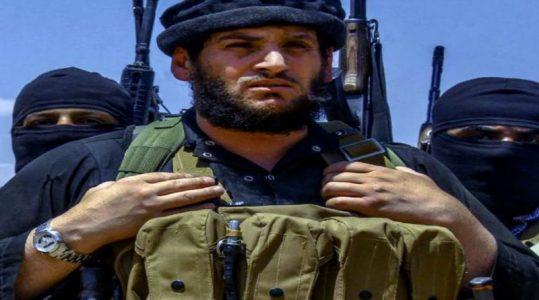
Assassinating al-Qaeda’s leaders crushed its power but will the same happen with ISIS?
The world awoke to the importance of a 39-year-old Syrian called Taha Falaha when he fell prey to a missile fired from an American drone. Better known by his nom de guerre Abu Mohammed al-Adnani, he was the deputy leader of the Islamic State of Iraq and the Levant (Isil) and the author of a string of blood-curdling statements.
Adnani’s most notorious incitement came when he urged Muslims in the West to “kill a disbelieving American or European – especially the spiteful and filthy French”. As well as offering rhetorical inspiration for terrorism, Adnani also ran the branch of Isil which actually organised attacks in Europe. On top of these dubious distinctions, he served as “governor” of Isil’s conquests in Syria.
As such, Adnani was probably the most senior casualty that Isil has yet suffered. His death raises a crucial question in counter-terrorism: how much real difference does the elimination of a battle-hardened operative make? Will Isil be weakened by the loss of a man like Adnani, or will his sudden removal by a metaphorical bolt from the blue make no genuine impact?
Israel pioneered the ruthless business of dispatching terrorist leaders one by one. Ironically, it was Barack Obama – a president who cultivated an image as a reluctant warrior – who followed in Israel’s footsteps by escalating the CIA’s drone war against al-Qaeda leaders, first in Afghanistan and Pakistan, later in Yemen and Somalia, and now pretty much anywhere.
Those who have been involved in “targeted killings” have agonised over their effectiveness. Ami Ayalon, who led Israel’s Shin Bet security service from 1995 until 2000, eventually reached the emphatic conclusion that assassinations were not worth the moral price.
In 2004, Israel killed two successive leaders of Hamas in the space of a month: Sheikh Ahmed Yassin and Abdulaziz Rantissi were cut down in turn. Yet Israel did not make itself safe from terrorism. As long ago as 1992, Israel eliminated Abbas Musawi, then leader of Hizbollah, only to see him succeeded by Hassan Nasrallah, who became every bit as dangerous.
“I can prove to you that Hamas did not become more moderate after Sheikh Yassin was eliminated,” said Mr Ayalon in The Gatekeepers, a remarkable Israeli documentary based on interviews with Shin Bet leaders. “I can prove to you that when we killed Abbas Musawi and Nasrallah took over instead, the security situation in Israel didn’t really improve.”
There were “huge question marks” over the ethics of assassination, added Mr Ayalon. “But I’m talking to you as head of the Shin Bet: it’s ineffective,” he declared.
And yet it seems incontestable that Osama bin Laden’s original al-Qaeda network was gravely weakened by the remorseless elimination of one figurehead after another – including bin Laden himself – at the hands of US drones and commando raids after 2009.
If “core al-Qaeda” is a shadow of its former self, then the heavy toll inflicted by Predators and Reapers is a big part of the explanation.
So why do targeted assassinations damage al-Qaeda but have little effect on the likes of Hamas and Hizbollah? The answer lies in the differing nature of these groups. Rather than being a movement firmly grounded in a society, al-Qaeda was a network, built around individuals with charisma and expertise.
Once those kingpins were toppled by missiles falling from a clear sky, the network around them crumbled. Whatever technical or other expertise the targets had built up over the years proved extremely difficult to replace.
Hamas, by contrast, is not the brainchild of one man, but a product of the conflict between Israel and the Palestinians. It has been shaped by the deeper currents within Palestinian society, particularly the growing appeal of radical Sunni Islam. So individuals are not vital to Hamas; those who are killed can be replaced.
If an operative with particular expertise, such as a master bomb-maker or rocket designer, happens to be eliminated, then Hamas may become temporarily less dangerous. The reprieve will last only until a replacement can learn those skills.
So the question of whether killing Adnani will weaken Isil depends, at root, on whether the movement is closer to al-Qaeda or Hamas. If the tempo of terrorist attacks in Europe does fall in the aftermath of his killing, that will be important evidence that Isil shares the vulnerability of al-Qaeda.
Source: Telegraph





